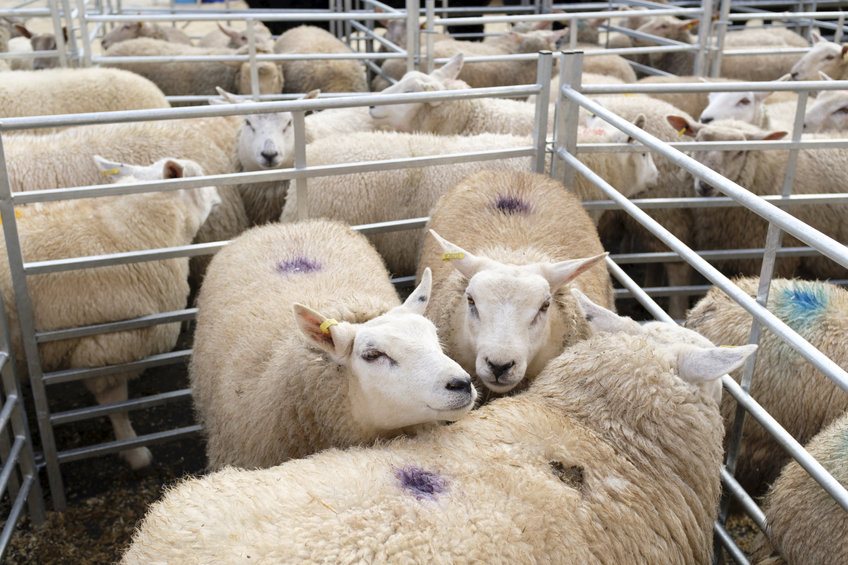
Livestock worth an estimated £2.1 million were stolen from farms across the country last year as fears are raised over a new wave of thefts due to rising prices.
While 2021 saw a 5% fall in livestock rustling incidents on the previous year, NFU Mutual warns that criminals could soon become more active again.
In 2020, the pandemic and subsequent lockdown saw livestock theft costs fall by 25.5%, reversing a trend of increases over the previous decade.
However, there are concerns that increases in prices - including meat - could lead to a resurgence in the crime this year.
Livestock rustling remains one of the costliest crimes affecting farmers, after machinery theft.
But the introduction of hi-tech security and marking systems, along with DNA testing, is increasingly making it more difficult for criminals to escape justice.
Rebecca Davidson, rural affairs specialist at NFU Mutual, said it was 'encouraging news' that the crime had gone down for the second year running, but she urged caution.
"It’s a crime which attacks the roots of farming life and causes huge anxiety for farmers," she explained.
"It also causes suffering to stolen animals which are transported and slaughtered without concern for their welfare.
“The fact that large scale thefts are still taking place demonstrates there’s no room for complacency.
"We’re concerned that higher meat prices, combined with the squeeze on consumers, could lead to a new wave of livestock theft.”
Rustling is a crime that has been going on for centuries. However, until the advent of large-scale farming and the development of modern road infrastructures, it rarely involved more than a couple of lambs or a single steer being stolen.
Today, it involves organised criminal gangs, and crime reported regularly involve over 50 sheep being taken in a single raid.
To avoid buying unsafe, stolen meat which has been slaughtered illegally, the public are advised not to buy from unusual sources and to look for the Red Tractor logo.
NFU Mutual is also supporting numerous initiatives to help detect theft, including two trials on-farm, using sensors to detect unusual activity and alert farmers.
The insurer has also supported secure shelters for stolen farm animals so they can be cared for while police investigations take place.
Meanwhile, Devon and Cornwall Police are rolling out an anti-rustling scheme on Dartmoor which is deploying a range of different security systems to beat thieves.
It also urges community involvement by getting residents and countryside visitors to report suspicious sightings of livestock being moved to farmers or the police.
Because of this scheme, NFU Mutual figures show the cost of rustling in Devon and Cornwall reduced by 8 percent last year.
PC Martin Beck of the Devon and Cornwall Police Rural Affairs Team said the scheme brought the whole rural community together to tackle livestock rustling.
“During 2022 we will be inviting local farmers, local residents and visitors to be the eyes and ears of the moor to help protect our farms and livestock," he added.
“We will also be using and testing a variety of security measures to prevent theft. It sends a clear message to criminals that rustling will not be tolerated.
"We are also working with partners to identify where stolen livestock or the products from illegal slaughter go."
How can I prevent rustling?
To deter and detect livestock thieves, NFU Mutual has issued advice and guidance for farmers:
• Ensure stock is clearly marked and records are up to date
• When possible graze livestock in fields away from roads
• Check stock regularly - and vary times of feeding and check-ups
• Consider gate sensors and a high-tech marking system
• Join a Farm or Rural Watch scheme to share information about rural crime activity in your area
• Ask neighbours to report any suspicious sightings either to you, the police, or to give information anonymously to the Crimestoppers Hotline 0800 555 111
• Dial 999 immediately if an incident is taking place – and do not approach criminals
